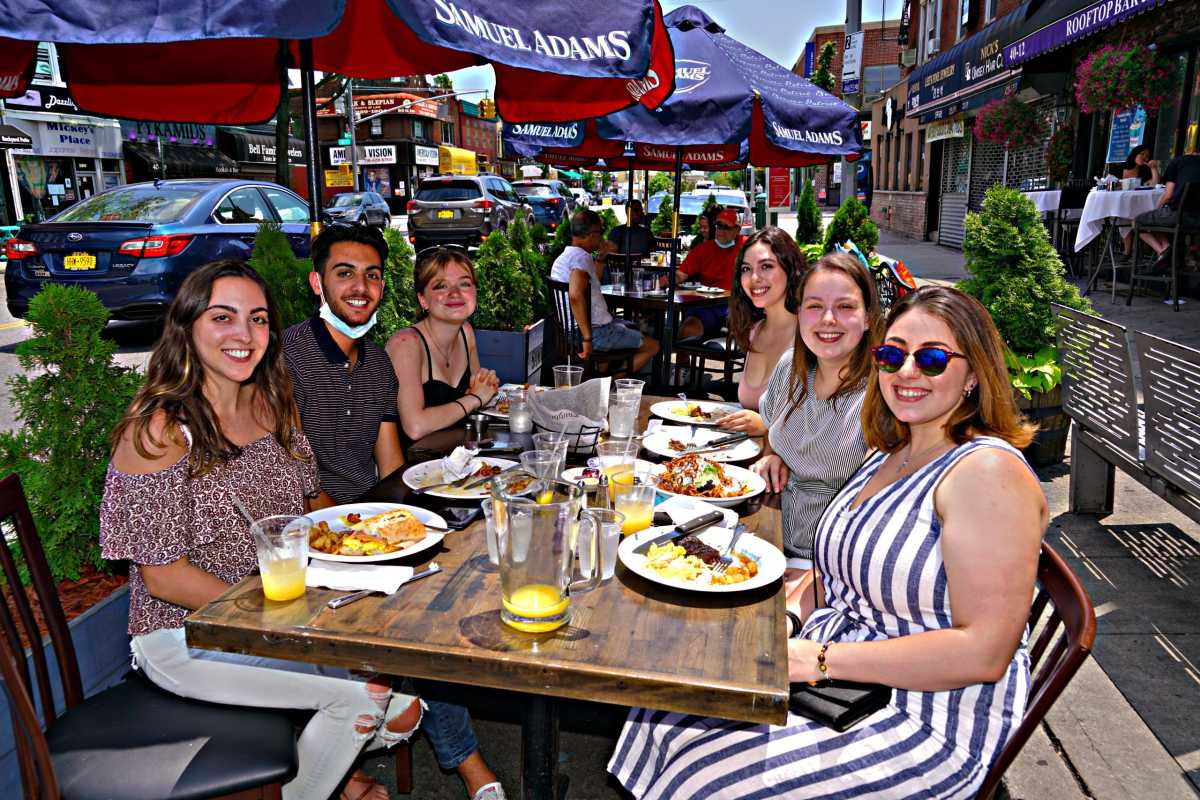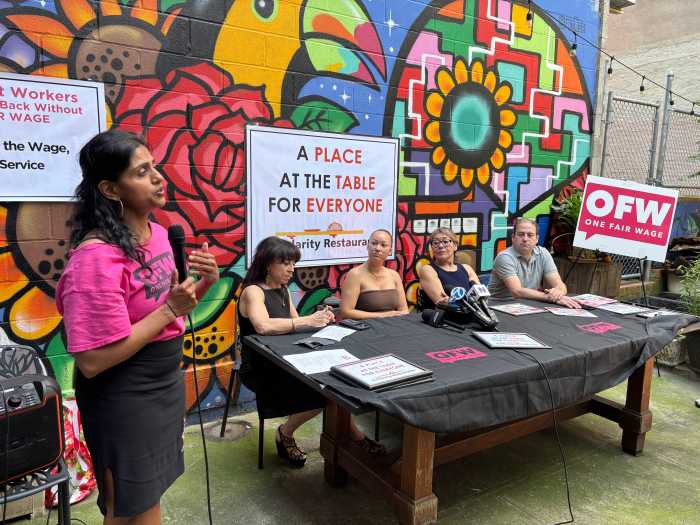Governor Andrew Cuomo and Mayor Bill de Blasio each said on Monday that they would reexamine indoor dining as the city approaches Phase 3 of the state’s reopening plan.
The city is on track to begin Phase 3 on July 6, which would mean nail salons, tanning salons, spas, and massage parlors can reopen. However, both lawmakers cited concerns on June 29 over spikes in cases of the virus in other states connected to the reopening of indoor bars and restaurants.
Cuomo said on Monday that he would decide on Wednesday if indoor dining would be allowed in New York City as a part of Phase 3 reopening. De Blasio seemed to indicate a reluctance to permit indoor dining, at least for now.
“So, a number of cities and states, unfortunately, have been moving in the wrong direction and we do see a nexus to a particular problem. We all love indoor dining, but we also see problems related with indoor dining,” de Blasio told reporters on Monday morning. “So, we’re paying attention to this lesson.”
In East Lansing, MI, 85 new coronavirus infections have been linked to one restaurant, de Blasio said. California Governor Gavin Newsom also ordered bars closed in seven counties on Sunday after the state began to see a sudden spike in cases, according to the Los Angeles Times.
Florida and Texas have also seen alarming spikes in cases linked to clusters in bars and restaurants.
Meanwhile, the city’s coronavirus numbers continue to be low, yet steady.
Only 51 people were admitted into a public hospital with suspected COVID-19 symptoms on June 27, and 297 people were admitted to one of the public hospital system’s intensive care units due to COVID-19 complications. De Blasio also reported that the percentage of New Yorkers testing positive for the virus remains at 2%.
Considering the financial impact New York City restaurants currently face, Andrew Rigie, executive director of the NYC Hospitality Alliance, said further financial help for these businesses is needed.
“New York City restaurants and bars have been financially devastated and the only thing they can afford less than reopening now, is to reopen, rehire and resupply only to be shut down again shortly thereafter,” Rigie said. “So while we’ll defer to the public health officials for preventing another spike in cases as we’re seeing in other states and cities across the nation, our small businesses urgently need certainty and immediate support on rent, expanded outdoor dining and other responsive policies if they are to have any real chance of survival and recovery.”







































